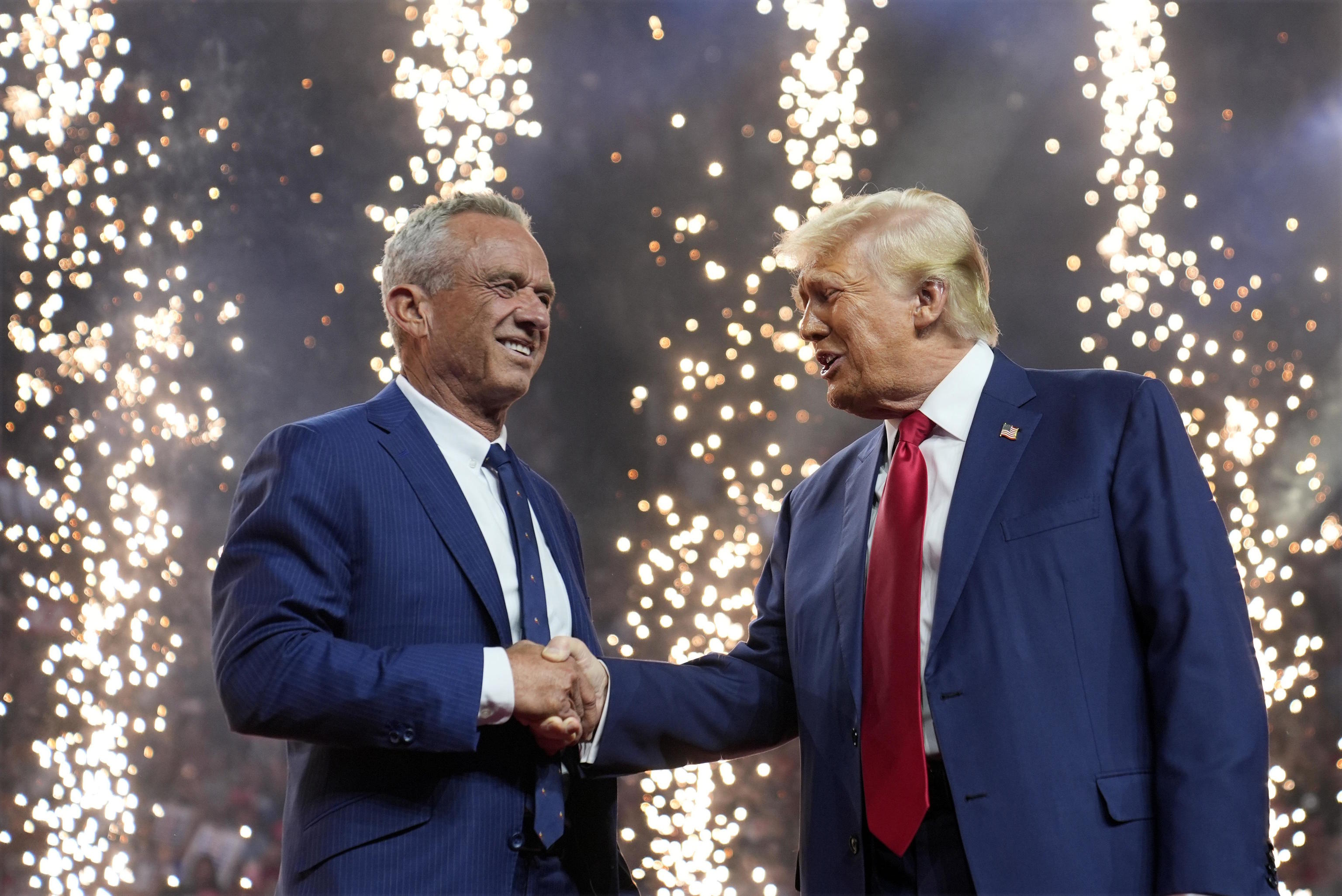Conservative lawyer Brooke Rollins was subsequently confirmed as secretary of agriculture.
"We had a very unfair system to us," Trump said as he signed his reciprocal tariffs order.
Trump said he won't be basing these new import taxes solely on other nations' tariff rates. The subsidies that foreign countries provide their companies as well as value added taxes — which are similar to sales taxes — also would be part of the calculation.
Higher tariffs under current law would be paid by U.S. consumers and businesses, either directly or in the form of higher prices. The White House has treated these tariffs as a tool to negotiate new trade deals as well as a way to raise government revenues.
If other countries retaliate and the tariffs stay in place, most economists say growth would suffer and inflationary pressures would intensify.
Employees at the National Science Foundation and the Housing and Urban Development Department have already been told that reductions in force are coming — and as much as half the workforce could get laid off, according to a person familiar with the situation and granted anonymity to discuss it.
NSF employees were told to expect a 25% to 50% reduction within two months, while HUD workers were told to plan for a 50% reduction.
Employees at the National Oceanic and Atmospheric Administration were also bracing for RIFs.
The top federal prosecutor in Manhattan resigned Thursday rather than obey a Justice Department order to drop corruption charges against New York City Mayor Eric Adams.
The resignation of Danielle Sassoon, a Republican who was the interim U.S. attorney for the Southern District of New York, was confirmed by a spokesperson for the office.
It came after acting Deputy Attorney General Emil Bove directed New York prosecutors to drop the case against Adams, who was accused of accepting illegal campaign contributions and bribes of free or discounted travel from people who wanted to buy his influence.
Bove's memo Monday said the case should be dismissed so the Democratic mayor could help the president crack down on immigration.
Republicans have advanced Kash Patel's FBI director nomination to the Senate floor, pushing past Democratic concerns that he's an unstable Trump loyalist who would target perceived adversaries for retribution.
Patel's vast catalog of incendiary past statements raised alarm, but he denied creating an "enemies list," and disavowed a highly unusual Justice Department demand for the names of all agents who helped investigate the Jan. 6 attack on the Capitol.
A letter from Democratic Sen. Dick Durbin cites undisclosed sources in saying Patel was covertly involved despite swearing he didn't know of plans to fire agents. A Patel spokeswoman called the allegations "gossip" pushing a "false narrative."
"We are inviting a political disaster if we put Kash Patel into this job," Durbin warned his colleagues. "I know none of you want a call from Elon Musk reminding you what he might do to somebody who votes the wrong way, but this really gets down to the heart of the future of an agency that is critical to the security of this nation."
President Donald Trump has rolled out his plan to increase U.S. tariffs to match the tax rates that other countries charge on imports, possibly triggering a broader economic confrontation with allies and rivals alike as Trump hopes to eliminate any trade imbalances.
"It's fair to all. No other country can complain," Trump said as he signed the order on Thursday.
Trump's Republican administration insists the tariffs will level the playing field between U.S. manufacturers and foreign competitors, though these new taxes would likely be paid by American consumers and businesses, either directly or in the form of higher prices.
The politics of tariffs could easily backfire if Trump's agenda pushes up inflation and grinds down growth.
